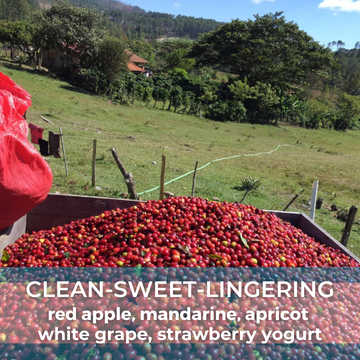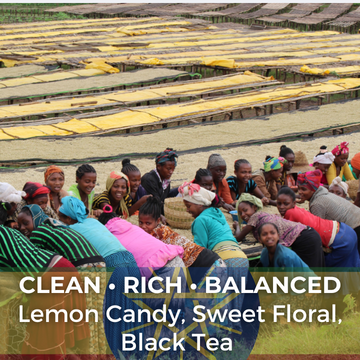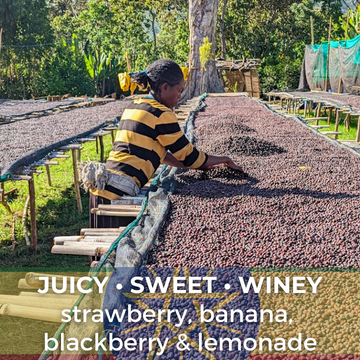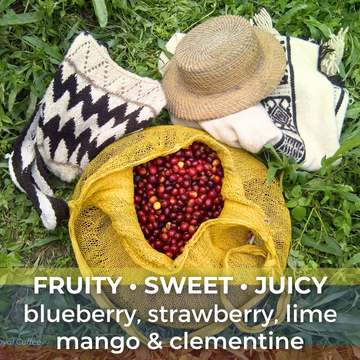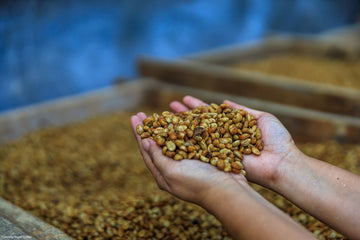Kenya Nyeri Kiawamururu AB
The best coffees we’ve had from Kenya this season have come from Nyeri County and our favorite of those was surprisingly an AB grade rather than the more popular AA. Well as it happens, recently Catalyst Trade has expanded their operations from Ethiopia into neighboring Kenya. So when we asked “what’s your favorite Kenyan coffee right now?”, we weren’t at all surprised when the answer was this AB from Nyeri!
This coffee is everything we want from a Kenyan coffee: big, bold and dripping with character. It’s fairly bright and well balanced with a luxuriously rich body and creamy texture. It’s fairly sweet with a red wine vibe reminiscent of a good cabernet sauvignon. We tasted notes of black currant, mango, gooseberry and rich caramel. The finish is slightly tannic but among its peers, we consider it quite clean. There’s also a herbaceous undertone that we found very complimentary to this profile.
Reminder! This coffee is raw, you must roast it before brewing
Arrival Date: December 23rd, 2022. Harvest Year: 2022, packed in GrainPro
Acidity & Brightness: Fairly bright and fairly sweet
Balance & Finish: Balanced with a dry, tannic finish
Body & Texture: Full bodied and rich, creamy texture
Flavors: Black currant, mango, gooseberry and caramel
Grade: Grade AB, grown at 1765 masl
Processing: Fully washed and dried in raised beds and parabolic greenhouses
Grower: 600 smallholder farmers organized around the Kiawamururu Factory
Region: Mukurweini, Nyeri County, Kenya
Varieties: SL28, SL34, Ruiru 11 and Batian
Recommended Roast Range: City+ to Full City+ (Light-medium to medium-dark)
We like this coffee best at either Light-Medium or Full Medium but you can go a little lighter or darker depending on the flavors you want to accent. Lighter roasts will have a bit more citric acidity as well as a more pronounced finish. Slightly darker roasts will bring out some chocolatey tones as well as emphasizing the caramel. This coffee roasts very evenly!
Catalyst Trade - "Kiawamururu Factory is multifaceted; they have a model farm where their agronomist helps educate farmers on best practices for growing high quality coffee, how to head off pests without reverting to pesticide use, and a multitude of other subjects. Also made available to the cooperative’s members are coffee seedlings and coffee pulp to use as fertilizer.
Beside the usual hardworking disc pulper, washing channels, fermentation and soaking tanks, Kiawamaruru has wet tables where the wet coffee beans drain before being transferred to drying beds, a whole fleet (or herd?) of drying tables spread with parchment, and a 24,000 kg capacity parabolic greenhouse to dry the P1 (top-quality) coffees without needing to cover them every night or every time rain threatens.
The place hums with quiet voices as farmers bring in their morning’s picking, walking up from the valley or in through the rusty-aqua gates to the sorting shed where they pour their half full grocery bags onto tarps and weed out over and under ripe cherries, defects and debris before taking them to be checked for quality and weighed. Once the producers receive the receipt for their coffee, they upend their bags of cherries into the huge slanted collection bin where they bounce and roll to rest against the last farmer's bag full. True community lots, these bring to the cup a tangible flavor of the rich red Kenya hills, the verdant vegetation which is almost jungle but is called “forest” by Kenyans, and the magic of the blue, blue sky.”
